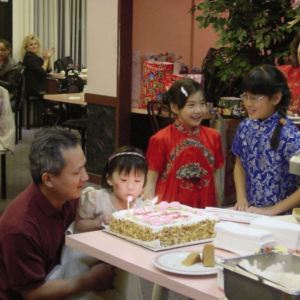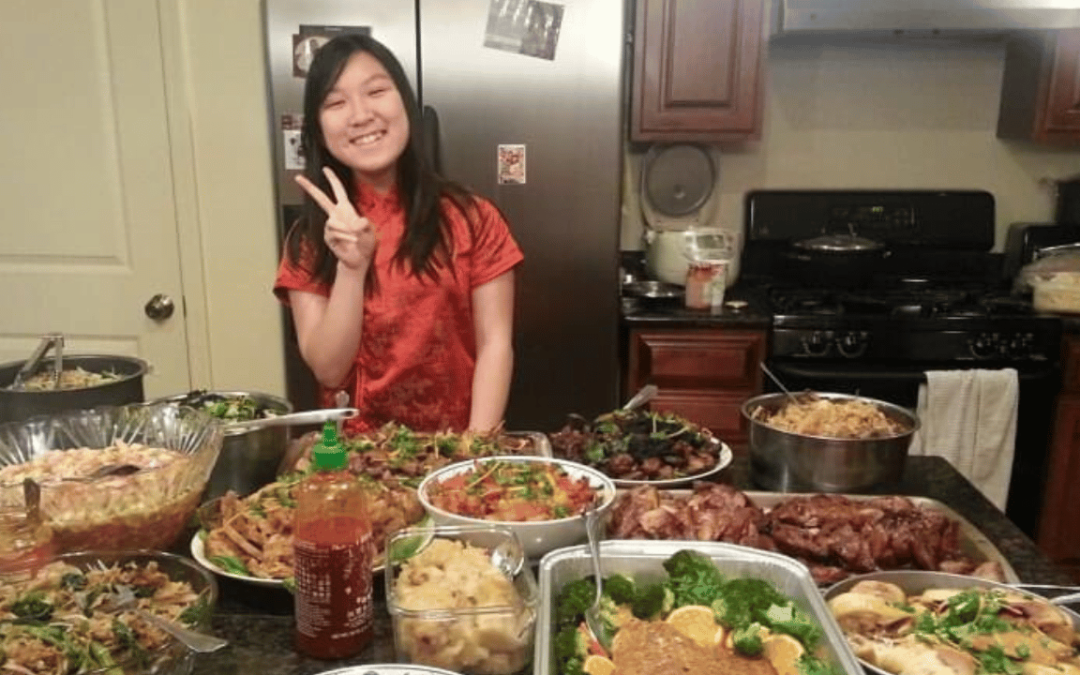Flashes of red.
Aunties laughing in the distance.
Children running around in cheongsams.
My second home sporting a mish-mosh of birthday and holiday-related decor for the night.
Lunar New Year was an enigma to me growing up. My parents did the best they could to teach me about my heritage–but there’s only so much a toddler can absorb when it doesn’t involve toys. It didn’t help that they dedicated their time fully to the American Dream, and ensured that my siblings and I could grow up with the plentitude of opportunities that America had to offer, even if it meant sacrificing family time together.
All I could understand about the holiday was that 1) it changed every single year, and 2) it always fell on or around my birthday.
As a child, I could not understand why the new year changed all the time, especially since we typically celebrated the “actual” new year a month before, but I could understand that there was a near 100% chance that my parents, proud restaurant owners, would gladly host a joint event between the new year and my birthday to celebrate.
Despite working as much as they did, taking little to no breaks throughout the year, they always made sure to dedicate this one night a year to me, and in turn, to teach me about our family, our culture, and what “family” meant to them.
Maybe to my parents, doing both at the same time was a way to kill two birds with one stone, but to me, it meant the world.
 Every year, I looked forward to my birthday simply because my child-self had translated my birthday to mean Lunar New Year, Lunar New Year to be a party, and the party to mean I’d be surrounded by my family.
Every year, I looked forward to my birthday simply because my child-self had translated my birthday to mean Lunar New Year, Lunar New Year to be a party, and the party to mean I’d be surrounded by my family.
Growing up in a small town, where no one looked like me, I was surrounded by covert and overt racism. I couldn’t understand why I looked the way I did, or why the size of my eyes or whether or not I’m good at a subject would come up in conversations, but absolutely none of that mattered when I was enveloped in the holiday festivities for the night. When I would celebrate my birthday, I would see the beauty of my relatives reflected in me: my eyes no longer felt small, my pin-straight hair no longer felt too straight, and best of all, my native language could be spoken without being made fun of. The night before, I’d practice my Cantonese religiously so that the night of, I could give my family the best “恭喜发财!” I could muster.
When I look back on my childhood, Lunar New Year, to me, was equal to good food, family reunions, turning a year older, and an abundance of all things red. It also represented times in my life when I could fully embrace the traditions that I grew up with and not feel ashamed for being different. I am proud to be a first-generation Asian American woman, leading with grace as I continue to carry on and create my own traditions with my family, and helping ensure that future generations of Asian American children don’t feel quite like I did growing up.
As we enter the new year, I part with this: 恭喜发财, 新年快樂, 身體健康! Or in other words–-Happy New Year, and may your year be prosperous, happy, and filled with good health!
This article was written and contributed by Sandy Chen (Phi).

